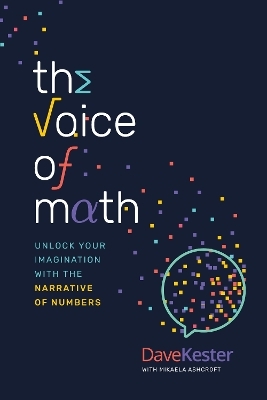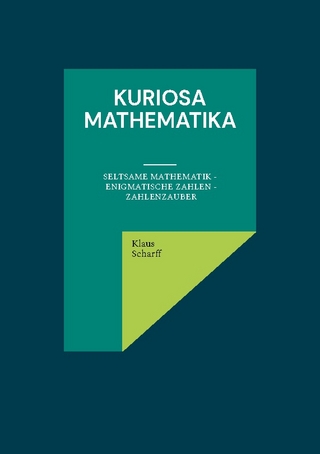Number Theory
Springer Berlin (Verlag)
978-3-540-42749-0 (ISBN)
"...a fine book ... treats algebraic number theory from the valuation-theoretic viewpoint. When it appeared in 1949 it was a pioneer. Now there are plenty of competing accounts. But Hasse has something extra to offer. This is not surprising, for it was he who inaugurated the local-global principle (universally called the Hasse principle). This doctrine asserts that one should first study a problem in algebraic number theory locally, that is, at the completion of a vaulation. Then ask for a miracle: that global validity is equivalent to local validity. Hasse proved that miracles do happen in his five beautiful papers on quadratic forms of 1923-1924. ... The exposition is discursive. ... It is trite but true: Every number-theorist should have this book on his or her shelf."
(Irving Kaplansky in Bulletin of the American Mathematical Society, 1981)
Biography of Helmut Hasse (1898-1979) Born on August 25, 1898 in Kassel, Germany, Helmut Hasse studied at the University of Göttingen after WWI. Of his teachers there including Landau, Hilbert and Ehmy Noether, Hecke influenced him most. In 1820, Hasse went to Marburg, and under the direction of Kurt Hensel, discovered what is now known as the Hasse principle, or "local-global" principle, in algebraic number theory. He held further positions at the universities in Kiel and Hall prior to 1933. With the troubles of 1933, Hermann Weyl, who had succeeded Hilbert in the foremost chair or mathematics in Germany, resigned and Helmut Hasse was appointed in this place. The following year, Hasse became director of the Mathematical Institute at Göttingen. From 1939 to 1945, Hasse worked in Berlin for the navy on problems in ballistics. He returned to Göttingen but was soon dismissed by the British occupation forces. In 1946 he took a research position at the Berlin Academy. Thereafter, he held positions at the Humboldt University in East Berlin, and, from 1950 until retirement in 1966, at the University of Hamburg.
I. The Foundations of Arithmetic in the Rational Number Field.- 1. Prime Decomposition.- 2. Divisibility.- 3. Congruences.- 4. The Structure of the Residue Class Ring mod m and of the Reduced Residue Class Group mod m.- 5. Quadratic Residues.- II. The Theory of Valued Fields.- 6. The Fundamental Concepts Regarding Valuations.- 7. Arithmetic in a Discrete Valued Field.- 8. The Completion of a Valued Field.- 9. The Completion of a Discrete Valued Field. The p-adic Number Fields.- 10. The Isomorphism Types of Complete Discrete Valued Fields with Perfect Residue Class Field.- 11. Prolongation of a Discrete Valuation to a Purely Transcendental Extension.- 12. Prolongation of the Valuation of a Complete Field to a Finite-Algebraic Extension.- 13. The Isomorphism Types of Complete Archimedean Valued Fields.- 14. The Structure of a Finite-Algebraic Extension of a Complete Discrete Valued Field.- 15. The Structure of the Multiplicative Group of a Complete Discrete Valued Field with Perfect Residue Class Field of Prime Characteristic.- 16. The Tamely Ramified Extension Types of a Complete Discrete Valued Field with Finite Residue Class Field of Characteristic p.- 17. The Exponential Function, the Logarithm, and Powers in a Complete Non-Archimedean Valued Field of Characteristic 0.- 18. Prolongation of the Valuation of a Non-Complete Field to a Finite-Algebraic Extension.- III. The Foundations of Arithmetic in Algebraic Number Fields.- 19. Relations Between the Complete System of Valuations and the Arithmetic of the Rational Number Field.- 20. Prolongation of the Complete System of Valuations to a Finite-Algebraic Extension.- 21. The Prime Spots of an Algebraic Number Field and their Completions.- 22. Decomposition into Prime Divisors, Integrality, and Divisibility.- 23. Congruences.- 24. The Multiples of a Divisor.- 25. Differents and Discriminants.- 26. Quadratic Number Fields.- 27. Cyclotomic Fields.- 28. Units.- 29. The Class Number.- 30. Approximation Theorems and Estimates of the Discriminant.- Index of Names.
| Erscheint lt. Verlag | 10.1.2002 |
|---|---|
| Reihe/Serie | Classics in Mathematics |
| Übersetzer | H.G. Zimmer |
| Zusatzinfo | XVII, 640 p. |
| Verlagsort | Berlin |
| Sprache | englisch |
| Maße | 170 x 244 mm |
| Gewicht | 1126 g |
| Themenwelt | Mathematik / Informatik ► Mathematik ► Arithmetik / Zahlentheorie |
| Mathematik / Informatik ► Mathematik ► Wahrscheinlichkeit / Kombinatorik | |
| Schlagworte | arithmetic • Number Theory • quadratic forms • valuation theory • YellowSale2006 • Zahlentheorie |
| ISBN-10 | 3-540-42749-X / 354042749X |
| ISBN-13 | 978-3-540-42749-0 / 9783540427490 |
| Zustand | Neuware |
| Informationen gemäß Produktsicherheitsverordnung (GPSR) | |
| Haben Sie eine Frage zum Produkt? |
aus dem Bereich




